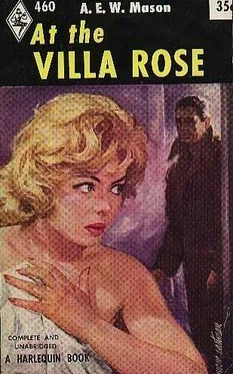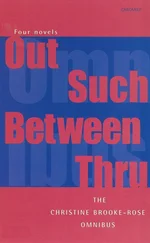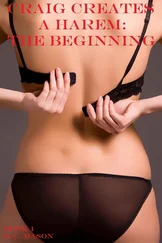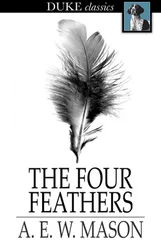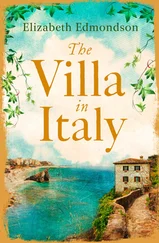A Mason - At the Villa Rose
Здесь есть возможность читать онлайн «A Mason - At the Villa Rose» весь текст электронной книги совершенно бесплатно (целиком полную версию без сокращений). В некоторых случаях можно слушать аудио, скачать через торрент в формате fb2 и присутствует краткое содержание. Год выпуска: 1910, Жанр: Классический детектив, на английском языке. Описание произведения, (предисловие) а так же отзывы посетителей доступны на портале библиотеки ЛибКат.
- Название:At the Villa Rose
- Автор:
- Жанр:
- Год:1910
- ISBN:нет данных
- Рейтинг книги:5 / 5. Голосов: 1
-
Избранное:Добавить в избранное
- Отзывы:
-
Ваша оценка:
- 100
- 1
- 2
- 3
- 4
- 5
At the Villa Rose: краткое содержание, описание и аннотация
Предлагаем к чтению аннотацию, описание, краткое содержание или предисловие (зависит от того, что написал сам автор книги «At the Villa Rose»). Если вы не нашли необходимую информацию о книге — напишите в комментариях, мы постараемся отыскать её.
At the Villa Rose — читать онлайн бесплатно полную книгу (весь текст) целиком
Ниже представлен текст книги, разбитый по страницам. Система сохранения места последней прочитанной страницы, позволяет с удобством читать онлайн бесплатно книгу «At the Villa Rose», без необходимости каждый раз заново искать на чём Вы остановились. Поставьте закладку, и сможете в любой момент перейти на страницу, на которой закончили чтение.
Интервал:
Закладка:
"Very well! take Mme. Dauvray as we find her-rich, ostentatious, easily taken by a new face, generous, and foolishly superstitious-and you have in her a living provocation to every rogue. By a hundred instances she proclaimed herself a dupe. She threw down a challenge to every criminal to come and rob her. For seven years Helene Vauquier stands at her elbow and protects her from serious trouble. Suddenly there is added to her-your young friend, and she is robbed and murdered. And, follow this, M. Wethermill, our thieves are, I think, more brutal to their victims than is the case with you."
Wethermill shut his eyes in a spasm of pain and the pallor of his face increased.
"Suppose that Celia were one of the victims?" he cried in a stifled voice.
Hanaud glanced at him with a look of commiseration.
"That perhaps we shall see," he said. "But what I meant was this. A stranger like Mlle. Celie might be the accomplice in such a crime as the crime of the Villa Rose, meaning only robbery. A stranger might only have discovered too late that murder would be added to the theft."
Meanwhile, in strong, clear colours, Ricardo’s picture stood out before his eyes. He was startled by hearing Wethermill say, in a firm voice:
"My friend Ricardo has something to add to what you have said."
"I!" exclaimed Ricardo. How in the world could Wethermill know of that clear picture in his mind?
"Yes. You saw Celia Harland on the evening before the murder."
Ricardo stared at his friend. It seemed to him that Harry Wethermill had gone out of his mind. Here he was corroborating the suspicions of the police by facts-damning and incontrovertible facts.
"On the night before the murder," continued Wethermill quietly, "Celia Harland lost money at the baccarat-table. Ricardo saw her in the garden behind the rooms, and she was hysterical. Later on that same night he saw her again with me, and he heard what she said. I asked her to come to the rooms on the next evening-yesterday, the night of the crime-and her face changed, and she said, 'No, we have other plans for tomorrow. But the night after I shall want you.'"
Hanaud sprang up from his chair.
"And YOU tell me these two things!" he cried.
"Yes," said Wethermill. "You were kind enough to say to me I was not a romantic boy. I am not. I can face facts."
Hanaud stared at his companion for a few moments. Then, with a remarkable air of consideration, he bowed.
"You have won, monsieur," he said. "I will take up this case. But," and his face grew stern and he brought his fist down upon the table with a bang, "I shall follow it to the end now, be the consequences bitter as death to you."
"That is what I wish, monsieur," said Wethermill.
Hanaud locked up the slips of paper in his lettercase. Then he went out of the room and returned in a few minutes.
"We will begin at the beginning," he said briskly. "I have telephoned to the Depot. Perrichet, the sergent-de-ville who discovered the crime, will be here at once. We will walk down to the villa with him, and on the way he shall tell us exactly what he discovered and how he discovered it. At the villa we shall find Monsieur Fleuriot, the Juge d’lnstruction, who has already begun his examination, and the Commissaire of Police. In company with them we will inspect the villa. Except for the removal of Mme. Dauvray’s body from the salon to her bedroom and the opening of the windows, the house remains exactly as it was."
"We may come with you?" cried Harry Wethermill eagerly.
"Yes, on one condition-that you ask no questions, and answer none unless I put them to you. Listen, watch, examine-but no interruptions!"
Hanaud’s manner had altogether changed. It was now authoritative and alert. He turned to Ricardo.
"You will swear to what you saw in the garden and to the words you heard?" he asked. "They are important."
"Yes," said Ricardo.
But he kept silence about that clear picture in his mind which to him seemed no less important, no less suggestive.
The Assembly Hall at Leamington, a crowded audience chiefly of ladies, a platform at one end on which a black cabinet stood. A man, erect and with something of the soldier in his bearing, led forward a girl, pretty and fair-haired, who wore a black velvet dress with a long, sweeping train. She moved like one in a dream. Some half-dozen people from the audience climbed on to the platform, tied thy girl’s hands with tape behind her back, and sealed the tape. She was led to the cabinet, and in full view of the audience fastened to a bench. Then the door of the cabinet was closed, the people upon the platform descended into the body of the hall, and the lights were turned very low. The audience sat in suspense, and then abruptly in the silence and the darkness there came the rattle of a tambourine from the empty platform. Rappings and knockings seemed to flicker round the panels of the hall, and in the place where the door of the cabinet should be there appeared a splash of misty whiteness. The whiteness shaped itself dimly into the figure of a woman, a face dark and Eastern became visible, and a deep voice spoke in a chant of the Nile and Antony. Then the vision faded, the tambourines and cymbals rattled again. The lights were turned up, the door of the cabinet thrown open, and the girl in the black velvet dress was seen fastened upon the bench within.
It was a spiritualistic performance at which Julius Ricardo had been present two years ago. The young, fair-haired girl in black velvet, the medium, was Celia Harland.
That was the picture which was in Ricardo’s mind, and Hanaud’s description of Mme. Dauvray made a terrible commentary upon it. "Easily taken by a new face, generous, and foolishly superstitious, a living provocation to every rogue." Those were the words, and here was a beautiful girl of twenty versed in those very tricks of imposture which would make Mme. Dauvray her natural prey!
Ricardo looked at Wethermill, doubtful whether he should tell what he knew of Celia Harland or not. But before he had decided a knock came upon the door.
"Here is Perrichet," said Hanaud, taking up his hat. "We will go down to the Villa Rose."
CHAPTER III
Perrichet was a young, thick-set man, with, a red, fair face, and a moustache and hair so pale in colour that they were almost silver. He came into the room with an air of importance.
"Aha!" said Hanaud, with a malicious smile. "You went to bed late last night, my friend. Yet you were up early enough to read the newspaper. Well, I am to have the honour of being associated with you in this case."
Perrichet twirled his cap awkwardly and blushed.
"Monsieur is pleased to laugh at me," he said. "But it was not I who called myself intelligent. Though indeed I would like to be so, for the good God knows I do not look it."
Hanaud clapped him on the shoulder.
"Then congratulate yourself! It is a great advantage to be intelligent and not to look it. We shall get on famously. Come!"
The four men descended the stairs, and as they walked towards the villa Perrichet related, concisely and clearly, his experience of the night.
"I passed the gate of the villa about half-past nine," he said. "The gate was dosed. Above the wall and bushes of the garden I saw a bright light in the room upon the first floor which faces the road at the south-western comer of the villa. The lower windows I could not see. More than an hour afterwards I came back, and as I passed the villa again I noticed that there was now no light in the room upon the first floor, but that the gate was open. I thereupon went into the garden, and, pulling the gate, let it swing to and latch. But it occurred to me as I did so that there might be visitors at the villa who had not yet left, and for whom the gate had been set open. I accordingly followed the drive which winds round to the front door. The front door is not on the side of the villa which faces the road, but at the back. When I came to the open space where the carriages turn, I saw that the house was in complete darkness. There were wooden latticed doors to the long windows on the ground floor, and these were closed. I tried one to make certain, and found the fastenings secure. The other windows upon that floor were shuttered. No light gleamed anywhere. I then left the garden, closing the gate behind me. I heard a clock strike the hour a few minutes afterwards, so that I can be sure of the time. It was now eleven o’clock. I came round a third time an hour after, and to my astonishment I found the gate once more open. I had left it closed and the house shut up and dark. Now it stood open! I looked up to the windows and I saw that in a room on the second floor, close beneath the roof, a light was burning brightly. That room had been dark an hour before. I stood and watched the light for a few minutes, thinking that I should see it suddenly go out. But it did not: it burned quite steadily. This light and the gate opened and reopened aroused my suspicions. I went again into the garden, but this time with greater caution. It was a clear night, and, although there was no moon, I could see without the aid of my lantern. I stole quietly along the drive. When I came round to the front door, I noticed immediately that the shutters of one of the ground-floor windows were swung back, and that the inside glass window which descended to the ground stood open. The sight gave me a shock. Within the house those shutters had been opened. I felt the blood turn to ice in my veins and a chill crept along my spine. I thought of that solitary light burning steadily under the roof. I was convinced that something terrible had happened."
Читать дальшеИнтервал:
Закладка:
Похожие книги на «At the Villa Rose»
Представляем Вашему вниманию похожие книги на «At the Villa Rose» списком для выбора. Мы отобрали схожую по названию и смыслу литературу в надежде предоставить читателям больше вариантов отыскать новые, интересные, ещё непрочитанные произведения.
Обсуждение, отзывы о книге «At the Villa Rose» и просто собственные мнения читателей. Оставьте ваши комментарии, напишите, что Вы думаете о произведении, его смысле или главных героях. Укажите что конкретно понравилось, а что нет, и почему Вы так считаете.
